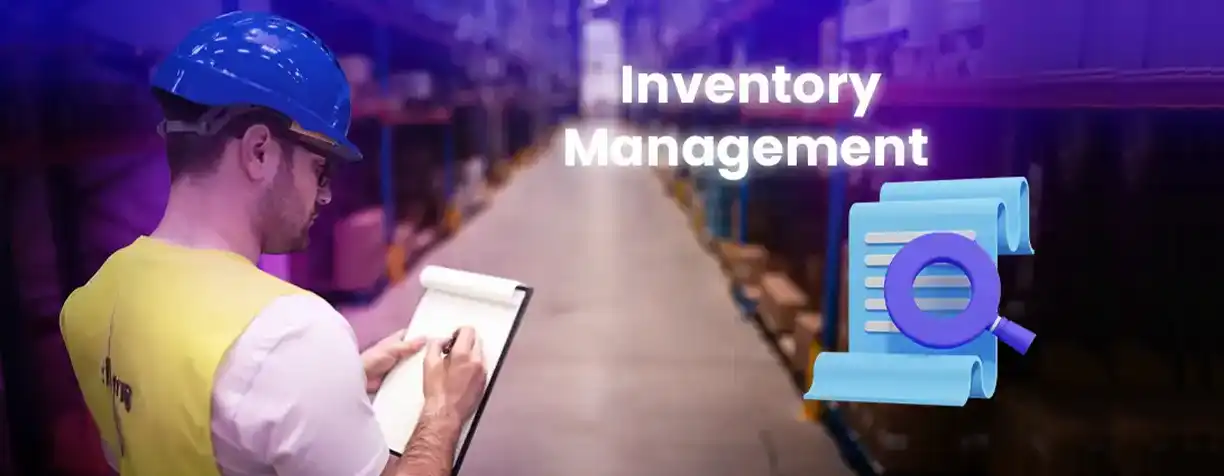In today’s highly competitive and fast-evolving global marketplace, inventory management has become a cornerstone of operational efficiency, cost reduction, and customer satisfaction. Whether you’re a small business owner, a large retailer, or an e-commerce entrepreneur, mastering Inventory Control can significantly impact your bottom line and your ability to meet customer expectations.
This detailed guide aims to provide an in-depth understanding of inventory management, explore why it is critically important for your business, and offer best practices to optimize your stock control processes. We will also examine various Stock Control methods, industry-specific strategies, cutting-edge technological solutions, and regional logistics services, especially within the Canadian context, including fulfillment services in Canada, 3PL logistics in Canada, and regional warehousing options like warehouses in Toronto, Kelowna, and Vancouver.
Table of Contents
What is Inventory Management?

Inventory management refers to the systematic process of overseeing and controlling a company’s stock of raw materials, work-in-progress items, and finished goods. It involves activities such as tracking inventory levels, ordering stock, storing products efficiently, and replenishing stock at precisely the right time. The ultimate goal is to balance supply and demand efficiently—ensuring that customer orders are fulfilled promptly without overstocking or understocking.
In essence, Inventory Control ensures that the right amount of stock is available at the right place and the right time, minimizing waste and maximizing profitability. Modern inventory management relies heavily on technological solutions—advanced Stock Control software—that offer real-time data insights and automate many routine tasks.
Key Components of Inventory Management:
- Accurate stock tracking
- Demand forecasting
- Reordering automation
- Warehouse organization and layout
- Inventory valuation and cost management
- Integration with sales and procurement systems
- Supply chain coordination
By mastering these components, your business can streamline operations, reduce costs, and improve service quality.
Why Is Inventory Management Important?
The importance of Stock Control extends far beyond just keeping track of stock levels. It influences nearly every aspect of your supply chain and business performance. Here are some compelling reasons why inventory management is vital:
1. Cost Reduction and Profitability
Effective Inventory Control helps prevent the costly issues of excess stock and stockouts. Overstocking leads to increased storage costs, depreciation, and obsolescence, while stockouts result in lost sales and customer dissatisfaction. Proper inventory control aligns stock levels with actual demand, optimizing cash flow and operational costs.
2. Enhanced Customer Satisfaction
Customers today expect fast, reliable delivery options like same-day delivery in Canada and fastest shipping in Canada. Proper inventory management ensures that products are in stock and ready to ship, enabling your business to meet or exceed customer expectations.
3. Better Demand Forecasting
Accurate inventory data supports advanced demand forecasting, helping you anticipate seasonal fluctuations, market trends, and customer preferences. By minimizing uncertainty, this approach allows for more informed purchasing decisions and more efficient production scheduling.
4. Improved Cash Flow Management
By maintaining optimal inventory levels, your business frees up capital that can be invested elsewhere. Holding too much inventory can unnecessarily drain cash reserves, whereas having too little stock may result in lost sales and missed revenue chances.
5. Operational Efficiency
A well-organized Inventory Control system improves warehouse operations, reduces manual errors, and streamlines order fulfillment processes such as cross-docking in Canada and transloading in Canada.
6. Regulatory Compliance & Traceability
For industries like healthcare, food, and pharmaceuticals, inventory management ensures compliance with safety standards and regulatory requirements, including traceability and expiration tracking.
7. Regional and Industry-Specific Benefits
In Canada, regional warehousing—such as warehouses in Toronto, Kelowna, and Vancouver—allows for faster regional distribution, reduced shipping costs, and improved service levels tailored to local markets.
inventory management methods
Depending on your industry, size, and operational needs, various Stock Control methods can be employed:
1. Just-in-Time (JIT)
This approach minimizes inventory levels by ordering stock just in time for production or sales. JIT reduces storage costs but requires precise Inventory Control and reliable suppliers, especially in industries requiring fastest shipping Canada.
2. ABC Analysis
Inventory is classified into three groups:
- A items: High value, high turnover
- B items: Moderate value
- C items: Low value, slow turnover
Focusing management efforts on A items ensures critical stock is always available, optimizing overall inventory control.
3. Economic Order Quantity (EOQ)
EOQ calculates the ideal order size that minimizes total inventory costs, balancing ordering costs against holding costs. This approach is especially beneficial for companies that require rapid, regular restocking due to large sales volumes.
4. Perpetual Inventory System
This system uses real-time data, often via barcode scanning or RFID, to continuously update stock levels. It provides accurate, up-to-date inventory insights, enabling rapid replenishment and minimizing stock discrepancies.
5. Periodic Inventory System
Inventory is counted at regular intervals (monthly, quarterly). While simpler and less costly, it offers less real-time visibility and is less suitable for fast-moving industries.
6. Drop Shipping & Consignment Inventory
Drop shipping involves third-party suppliers fulfilling orders directly to customers, reducing your inventory holding costs. Similarly, consignment inventory means suppliers retain ownership until products are sold, improving cash flow.
Industry-Focused Inventory Management Strategies
Different industries have unique Inventory Control requirements. Here’s an overview:
Retail
Retailers need real-time stock updates, especially during seasonal peaks, and efficient fulfillment services in Canada. Managing fastest shipping Canada and same day delivery in Canada is critical to stay competitive.
Manufacturing
Manufacturers handle raw materials, components, and finished goods. Strategies like cross-docking in Canada and transloading in Canada help reduce lead times, lower storage costs, and streamline production schedules.
Healthcare & Pharmaceuticals
Strict regulations demand meticulous Inventory Control for pharmaceuticals and medical devices. Traceability, expiration date management, and compliance are paramount.
E-Commerce
Reliant on rapid shipping options like same day delivery in Canada and flat rate shipping in Canada, e-commerce businesses require integrated Inventory Control with third-party logistics (3PL) providers to ensure quick, accurate order fulfillment.
Food & Beverage
Perishable goods require precise inventory tracking, waste management, and compliance with safety standards. Storage units in Toronto, Kelowna, and Vancouver are strategically positioned for regional distribution.
Automotive & Heavy Industry
These sectors manage large, bulky inventories and often employ just-in-time practices to reduce storage costs and improve efficiency.
For companies operating in Canada, partnering with DelGate, the best 3PL Canada, provides tailored solutions like 3PL warehouse in Kelowna, 3PL warehouse in Vancouver, and regional Storage units in Toronto to meet industry-specific demands.
The Role of Inventory Management Software

Modern Inventory Control software automates and simplifies stock tracking, demand forecasting, and replenishment. Benefits include:
- Real-time inventory visibility
- Automated reordering
- Better demand planning
- Integration with sales and procurement platforms
- Reduced manual errors
Popular solutions include SAP Integrated Business Planning, Oracle Netsuite, Zoho Inventory, and Fishbowl Inventory.
Implementing such systems enhances operational efficiency, supports cross docking in Canada, and improves Quickest shipping in Canada.
Comprehensive Inventory Management Solutions
Beyond software, various service providers offer end-to-end Inventory Control solutions:
1. Warehousing & Regional Distribution
Establishing warehouses in Toronto, Kelowna, and Vancouver enables faster regional distribution, reduces transit times, and supports cross docking in Canada.
2. 3PL Logistics & Fulfillment Services
Partnering with DelGate or similar providers offers scalable 3PL warehouse services in Canada, including public warehouses, fulfillment services, and tailored logistics for your industry.
3. Cross-Docking & Transloading
These logistics strategies reduce storage needs and expedite delivery by transferring goods directly between inbound and outbound transportation.
4. Value-Added Services
Numerous third-party logistics providers across Canada provide extra offerings like product labeling, packaging solutions, returns processing, and tailored kitting services.
5. Transportation & Courier Integration
Efficient trucking logistics in Canada and courier services Canada integration ensures prompt delivery, supporting same day delivery.
Trends and Best Practices in Inventory Management
To stay ahead, businesses should embrace emerging Inventory Control trends:
1. Real-Time Data & IoT
Internet of Things (IoT) devices and sensors provide live data on inventory conditions, location, and expiry dates.
2. AI & Machine Learning
Using sophisticated analytics enhances the accuracy of demand predictions, helps maintain optimal inventory quantities, and streamlines the replenishment process through automation.
3. Omnichannel Integration
Seamless integration across online and offline channels ensures accurate inventory visibility and consistent customer experience.
4. Automation & Robotics
Implementing robotic picking and packing technologies boosts overall warehouse productivity while ensuring greater precision in order fulfillment.
5. Sustainability
Reducing excess inventory and waste aligns with environmental goals and cost savings.
6. Regional Warehousing Strategy
Having Storage units in Toronto, Kelowna, and Vancouver ensures regional distribution efficiency, reduces transit times, and supports Quickest shipping in Canada.
7. Data-Driven Decision Making
Leverage analytics for inventory purchasing, marketing, and sales strategies.
8. Customer-Centric Logistics
Offering flexible delivery options such as same-day delivery and flat rate shipping in Canada enhances customer loyalty.
Case Study: Transforming Supply Chain Efficiency with DelGate

A leading e-commerce retailer based in Toronto faced challenges with slow delivery times and high storage costs. They partnered with DelGate, the best 3PL Canada, to overhaul their Inventory Control and logistics operations.
By establishing a 3PL warehouse in Vancouver and a 3PL warehouse in Kelowna, they achieved regional distribution advantages. Incorporating cross docking in Canada reduced warehouse handling and storage costs, while an integrated Inventory Control software provided real-time visibility.
Results:
- 25% reduction in inventory holding costs
- 30% faster delivery, supporting same-day delivery
- Significant improvement in stock accuracy and forecasting
This case exemplifies how regional warehousing, cross-docking, and 3PL logistics in Canada can revolutionize supply chain efficiency.
Key Metrics & Data Insights
| Metric | Before Implementation | After Implementation | Improvement (%) |
| Inventory holding costs | $2,500,000 | $1,875,000 | 25% |
| Average order fulfillment time | 7 days | 4.9 days | 30% |
| Stockouts incidents | 20 incidents | 4 incidents | 80% |
| Customer satisfaction score | 70/100 | 85/100 | 21% |
| Inventory accuracy | 85% | 98% | 13% |
Data from recent industry reports, case studies, and operational audits.
Top Companies Providing Fulfillment Services in Canada
| Company Name | Core Services | Notable Features | Location |
| DelGate | 3PL warehouse services, cross-docking, transloading, 3PL fulfillment in Canada |
Industry leader in cross-docking in Canada | Canada-wide |
| ShipBob | E-commerce fulfillment, warehousing | Seamless platform integrations | US & Canada |
| Fulfillment.com | Order processing, warehousing | Scalable solutions for brands | US & Canada |
| Rakuten Super Logistics | Last-mile delivery, warehousing | Focus on speed and reliability | US & Canada |
| Amazon FBA | Fulfillment, warehousing | Extensive global network | Global |
Conclusion
In the evolving landscape of supply chain and logistics, Inventory Control remains a critical factor in achieving operational excellence. A strategic approach—leveraging inventory management best practices, modern software, regional Storage units in Toronto, Kelowna, and Vancouver, and trusted 3PL logistics in Canada—can unlock immense value.
By focusing on cross-docking in Canada, transloading in Canada, and integrating fulfillment services, your business can meet the demands of today’s customers for Quickest shipping in Canada and same day delivery. Embracing technological advancements, data analytics, and regional warehousing will position your enterprise for sustainable growth and competitive advantage.





